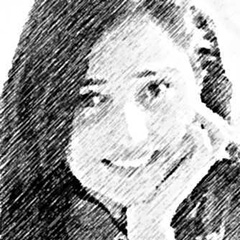
A police officer on duty is the latest victim of the mob madness that has slowly been eating into the fabric of Pakistani society. Brutally beaten up, he is in hospital. In another incident earlier in the month, a security person was caught in a crowd. If it were not for the large-heartedness (meant for the television cameras) of the leader on stage, who publicly forgave him, he would have been lying in his grave. No one listened to his pleas or his explanations because no one was interested. They took him for someone they believed he was because it suited them just right. In the frenzied madness, he was unheard. This is what our country has become today. Voices are not heard, sane opinions get lost in insane noises and he who speaks the loudest (not necessarily the sanest) is the one who leads the mob.
In a country where women have acid hurled on them for shopping in a market, Christian colonies are burnt, young boys publicly lynched by angry crowds and a sitting governor assassinated for speaking up for minority rights, we are all treading a very dangerous path. Instead of becoming the custodians of our country and the vision that it stands for, we have become custodians of our different faiths, custodians of our ideologies (political or otherwise) and custodians of our limited knowledge and dedh eenth ki masjids (exclusive spaces for ourselves). We have taken upon our shoulders what the state is responsible for while shirking all the duties we should be doing for the state.
Even when it comes to the condemnation of violent mob behaviour we choose to be biased and subjective. Instead of opting for selective humanity, all acts of violence or injustice should be condemned with equal energy and force. It should not matter whether the victim is a Muslim or non-Muslim, Shia or Sunni, Christian or Ahmedi, and the latest flavour of the month, PTI or PML-N. We, as a nation, regardless of our thoughts, beliefs and religious and political affiliations, need to expand the spaces of tolerant and objective discourse. These spaces have shrunk to an extent where even the highly educated and liberal are unwilling to listen to the other point of view and nowhere is this manifested more than on social media.
While the media, especially social media, opened up new avenues of information for its users, the quality and substance of the discourse has taken a nosedive. It has actually given a chance to some people to hide behind the anonymity social media provides and indulge in intolerant and prejudiced exchanges. The Ahmedi family heartlessly burnt alive in their home in Gujranwala, while preparing to celebrate Eid with their fellow countrymen, was the result of an inflammatory Facebook update. The mob celebrating the murders with song and dance was no different from the warring Mongols of centuries ago. Even they had some rules, I am sure. The actions of the mob stands validated when the government and law enforcing agencies, instead of issuing strong condemnation, give out apologetic murmurs. This, however, is a separate debate for some other time.
The situation will not improve with greater access to information. It will improve when we develop the maturity to handle information, analyse information and react to information in an objective manner. Where the 24/7 media and social media should have opened up our minds, they have closed them further. Our likes and dislikes have become more prominent and our arguments and disagreements very public and impolite. Free flying, unverified accusations have become the norm and trolling has become the parasite that is discouraging healthy debate and eating up any sane, logical speech that should be heard. It needs to be understood, however, that when one person is a troll, the other using the same language and style to express his/her point of view is not any different. Both are trolls. Period.
In the current, heated political climate it is important to realise that there is another point of view that has to be heard, whether you like it or not. We as a society have stopped listening. When you stop listening you basically stop communicating. Listening is an inherent part and a basic principle for communication. Communication is key for the healthy exchange of ideas and, resultantly, for open and free societies.
In today’s Pakistan, revolution is the most used, or rather misused, word. Political debates aside, if there is ever a revolution needed, it is the one in attitudes, actions, thinking, ideologies and character. The violent, always angry, illogical, partisan mob has to give way to a more tolerant, objective, accepting of different worldviews and progressive society. If there ever has to be revolution it should be a revolution where the Salmaan Taseers are celebrated across the board without any ifs and buts, an Abdus Salam is as rewarded and revered as an Abdul Qadeer Khan, and where a Ramchand or a Joseph is as respectable and secure as an Allah Rakha or Abdullah.
The writer is a communications specialist, former television producer and a peacenik. She can be reached at gulalaikhan@gmail.com
